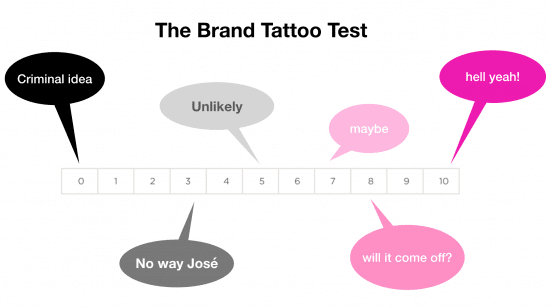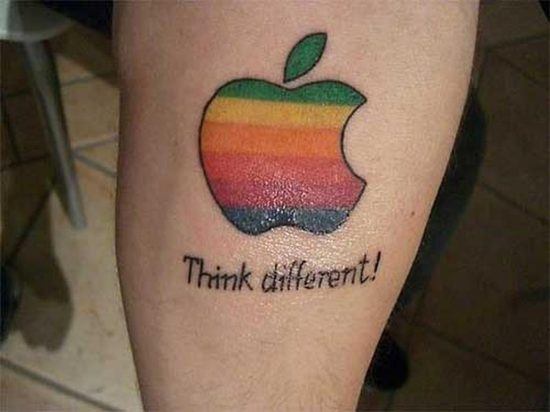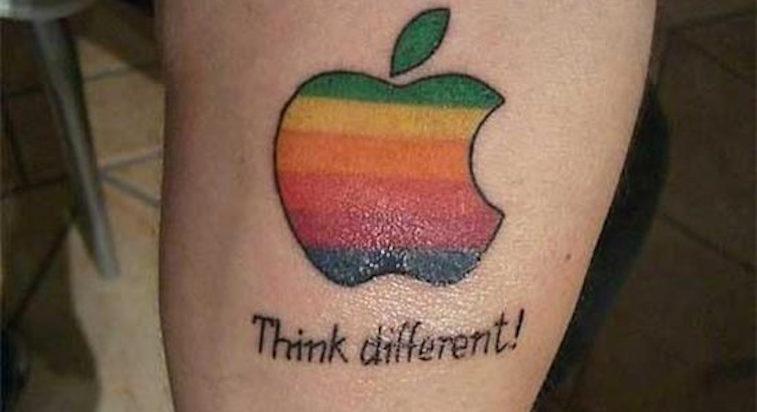The good news seems to be that there is more and more talk about brands needing or having purpose. And I fully believe purpose is a profound force — more than having a great product — in creating long-term value. Yet, the bad news is that, even if many people and conferences talk about it, it is equally evident that few are the brands that are living it.
Some years ago, I came up with this idea that I feel brings to light the true level of purpose of a brand: Can your brand pass the brand tattoo test?
Assuming you are positively disposed to tattoos, how likely would you tattoo the name or logo of the brand for which you work on your body? Share on X

What greater sign of loyalty or sense of belonging could a person show? Of course, it’s risky business because, as sure as day will follow night, the brand logo, much less ownership, will change over time. But, when a brand feels like it has integrity and is genuinely striving to be authentic, that should not be an obstacle, because you are subscribing to a longstanding and principles-based philosophy and devotion. In researching this post, I discovered that there is apparently a certain Jason George in India who has (per this article, published in March 2017) sat through the tattooing of 380 brand logos on his body. He claims that each of these brands has contributed to his life in some way. And, contributing to your customer’s life really could be the mission of brands that are serious about thriving long-term.

I fully admit that I personally don’t do tattoos. But if I did, I absolutely know which brand I would accept to tattoo on myself. The proof is that I still proudly wear t-shirts and caps with the logo emblazoned on it.

While I’m at it, perhaps an even more radical question could be: On a scale of 1-10, how likely would you tattoo the name or logo of your brand on your own child?
In the end of the day, this is not an attempt to warrant tattoos. But, it speaks to the attachment and engagement one might feel for a brand/company.
I believe that Brands with purpose are necessarily more humanistic. Share on X They are striving to do some greater good all the while making profits. And, I tend to think that humanistic brands are sometimes considered in a similar vein to a favourite sports team. And there are certainly plenty of people who tattoo their favourite teams on their body.
What if your C-suite asked: What would it take for your brand to curry such a royal treatment on your body as an employee, much less as a customer?
Revised Sep 6 2018 – Just came across this blog post on Brand Twist which clearly pre-dates mine! The Tattoo Test Measuring Brand Passion Proof, one is rarely as original as one thinks! Meanwhile, it also appears from very recent research that tattoos are becoming more acceptable at work, as this study at the Academy of Management, Body Art as a Source of Employment Discrimination, attests. “Researchers at the University of Western Australia and the University of Miami found that tattooed and non-tattooed applicants enjoyed similar levels of employment and income.”











